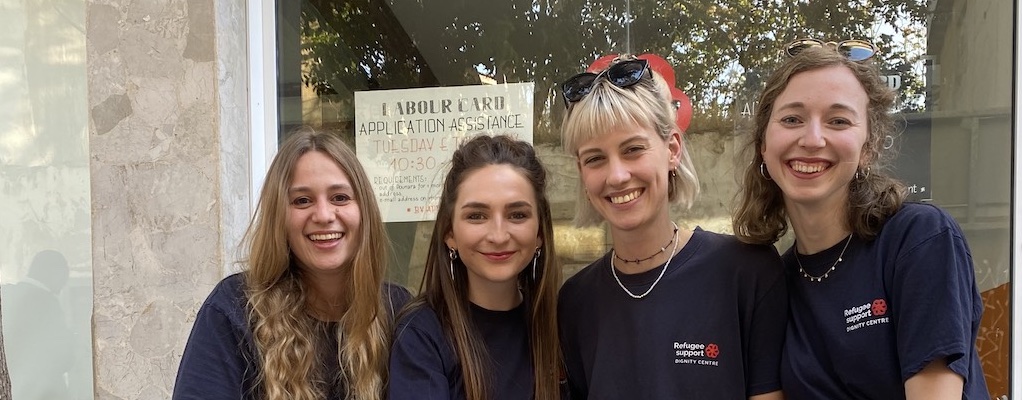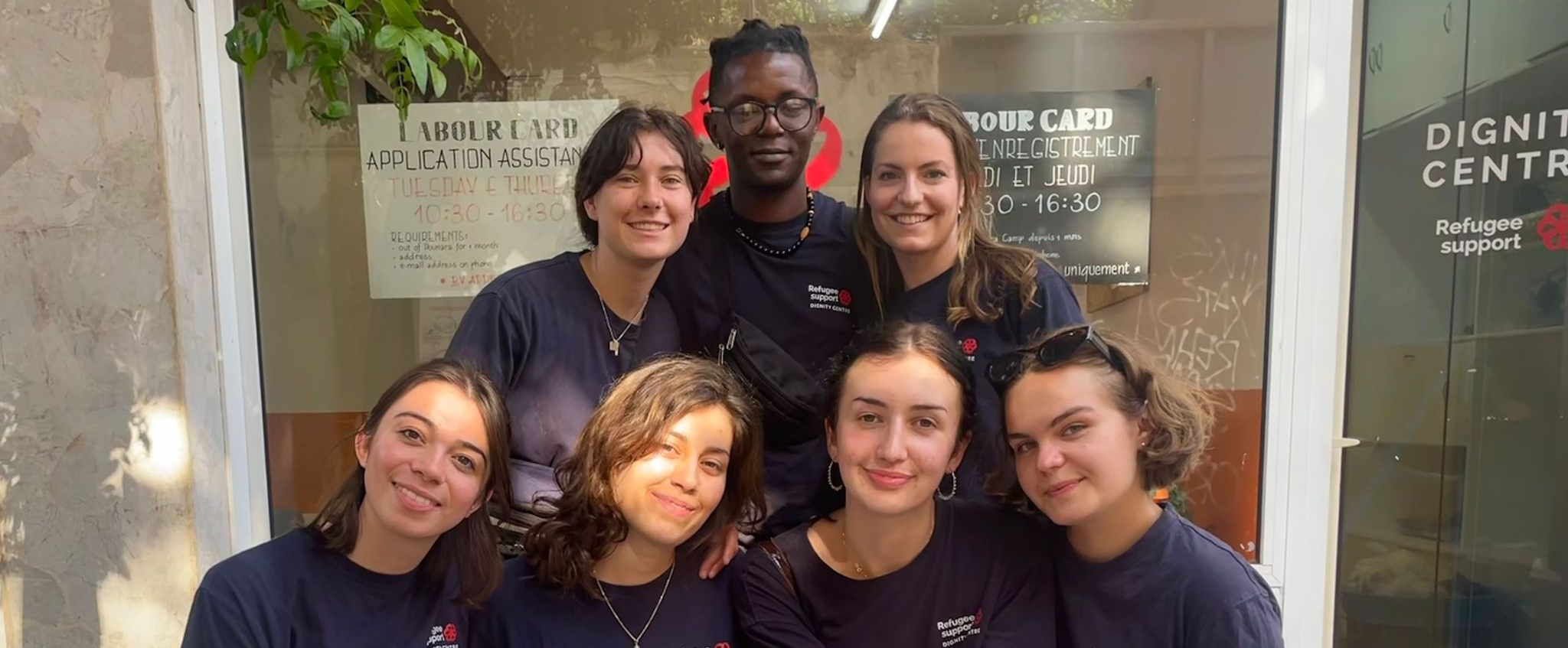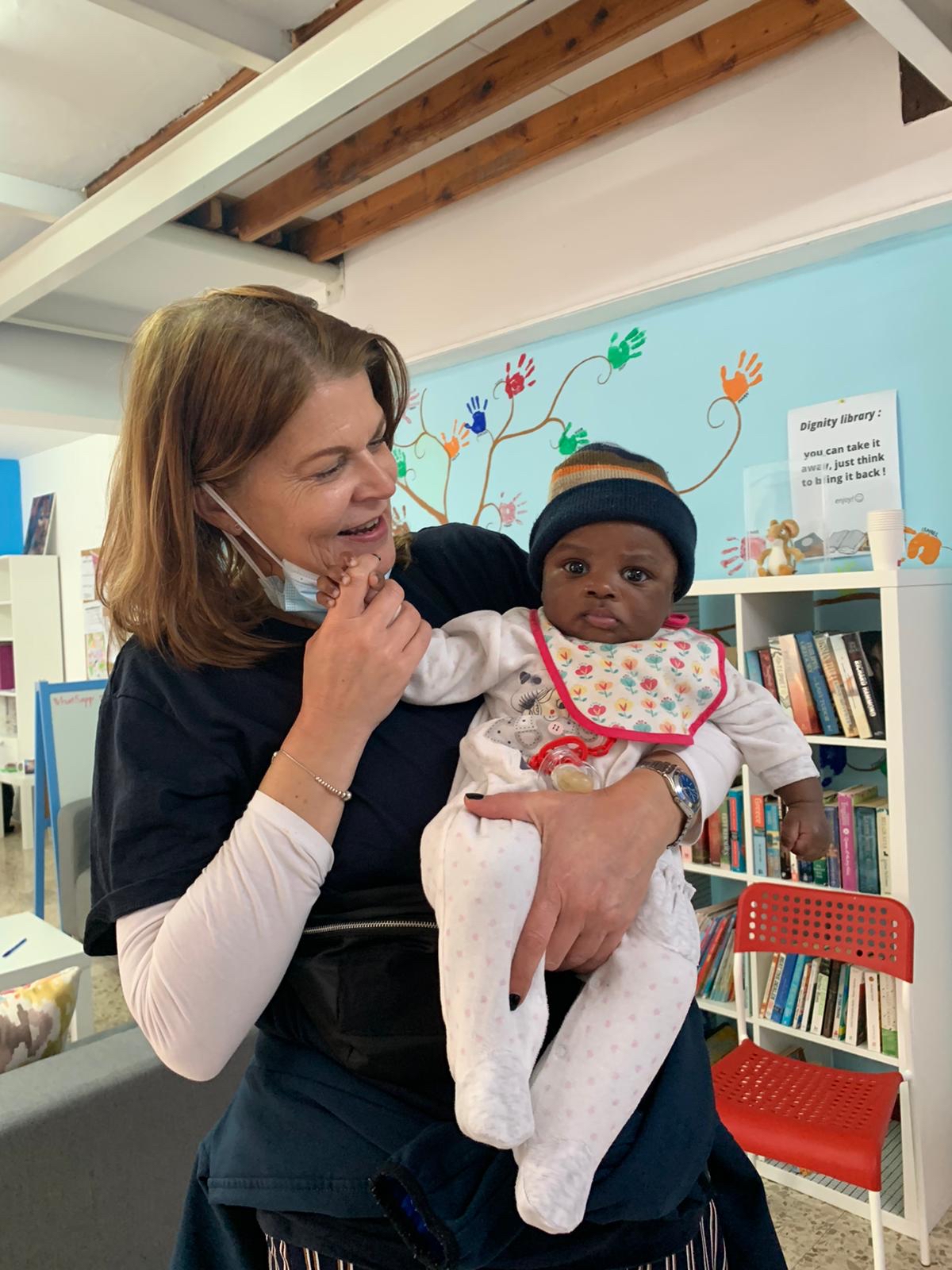I remember the moment I finally decided to volunteer for Refugee Support. I was sitting alone in the pub, waiting for friends to arrive, growing tired of the internal dialogue: “What’s the point: one person can’t make a difference? Does that mean I should just do nothing? But then am I just doing it for myself, to alleviate these feelings?”

I’d been going around in circles like that for longer than I care to confront. I fired off an email to Paul, a friend of a friend, there and then. It was almost half a year before I’d actually land in Greece, but the wheels were set in motion and immediately it felt like the right thing.
The media persists in dehumanising refugees. We see words like ‘migrant’ (not to mention the much more derogatory language used by the tabloids) in place of simply ‘person’. Interacting with the residents of LM Village, where I volunteered, I realised something even I hadn’t understood before: that the people there are just.like.me. Young, fun-loving, hopeful.
In the run up to my arrival, I purposefully held off on building any expectations. It felt pointless to try and imagine something so unlike anything I’d experienced before. Perhaps unsurprisingly, the most difficult part about volunteering changed as time passed.
At first, distributing limited resources was challenging, because in order to be fair it was sometimes necessary to say ‘No’ to people who asked me for things, like food or clothes. It somehow felt like I was reinforcing power imbalances (such as those between Greece and Europe, Syria and the West). But of course, when delivering aid, you have to find a way to distribute it fairly, and I began to see that the shop and boutique are, in fact, an ingenious way of redressing the balance, to make everyday transactions feel more on equal terrain.
Then I realised that, once the basics—food, shelter, clothing, community—are covered, the real challenge is not material but emotional. Watching distant politics play out in individuals’ lives, I got a small sense of their powerlessness, and it made me wonder how people are able not only to survive but to smile, how the deep frustration of injustice coexists with the need to get up everyday, to go about your life—because what else do you do?
What is the long-term cost of this ‘crisis’? (I use that term to refer to the ongoing humanitarian crisis.) The damage to mental health that will likely remain uncounted, unacknowledged, undocumented, yet that will in all likelihood leave a scar that will last generations, affecting not just those living through it and the children born into it, but, conceivably, also their children, and their children’s children, who stand to inherit this trauma.

But I no longer feel paralysed by guilt or frustration. I see that, although much power rests with governments, without NGOs like Refugee Support, life for those in limbo would be much more difficult, painful and undignified. Bringing dignity is in itself a political act, a statement that acknowledges humanity where others refuse to.
It’s not just about giving up a few weeks and then going back to my comfortable life. Whether it’s raising funds or awareness, having difficult conversations to change one mind at a time, or working to support refugees in our own countries, we can all contribute to deconstructing the systems of power and perception that made this situation possible in the first place. The volunteering is over; now the hard work begins.



